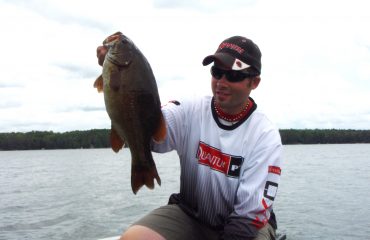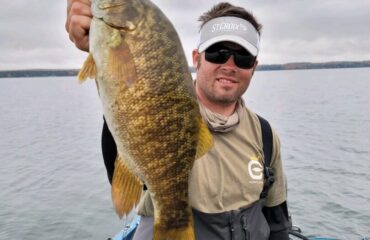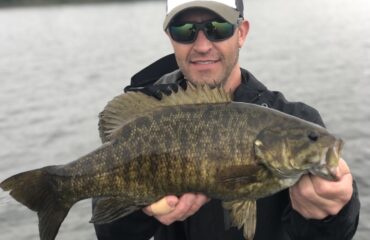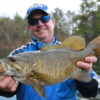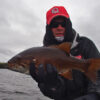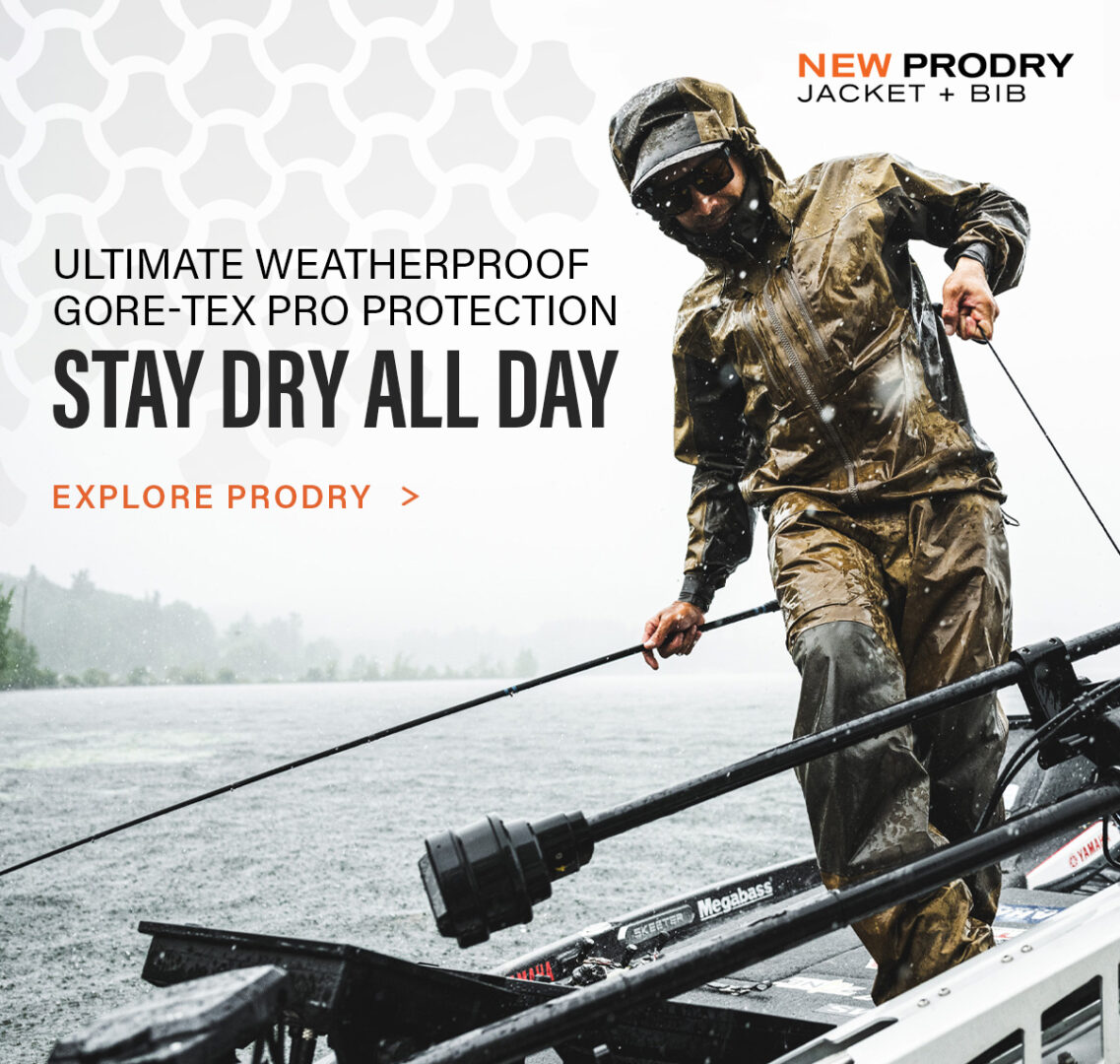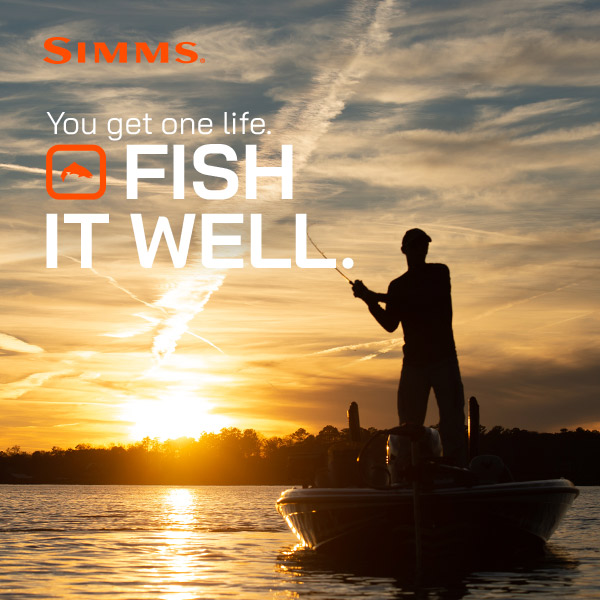Advice for Hiring a Fishing Guide (Not Me – But Everyone)
Horror stories about guided fishing trips and customer experiences run rampant through all social circles. Having been in the guiding profession now for 8 seasons, I’ve been subjected to many tales about fishing trip misfortunes. Almost every angler I host nowadays has a story to share, whether it’s good, bad, or entertaining.
Advice for hiring THE RIGHT fishing guide is a topic and subject that has been nagging me. COVID life, angler attitudes and their self-entitlement have escalated it.
These last few years, anglers have more money and time on their hands. As a result, guided fishing trips are high in demand. Consequently, there are more fishing guide services and charters occupying our waters and taking advantage of abundant clientele, the resources, and these new business opportunities.
Due to Canadian travel restrictions, accommodating the influx of newcomer anglers to northern Wisconsin has been a boon to my business. But being higher in demand, more than I ever envisioned or can accommodate during certain weeks of the year, has delivered many personal challenges and headache.
What I hope we accomplish from this column is less headaches for guides, and that all prospective clients experience good, positive fishing trips.
Finding the perfect fishing guide isn’t an easy task. It’s complicated and challenging to find the right match and compatible guidance for your personal needs and fishing objectives.
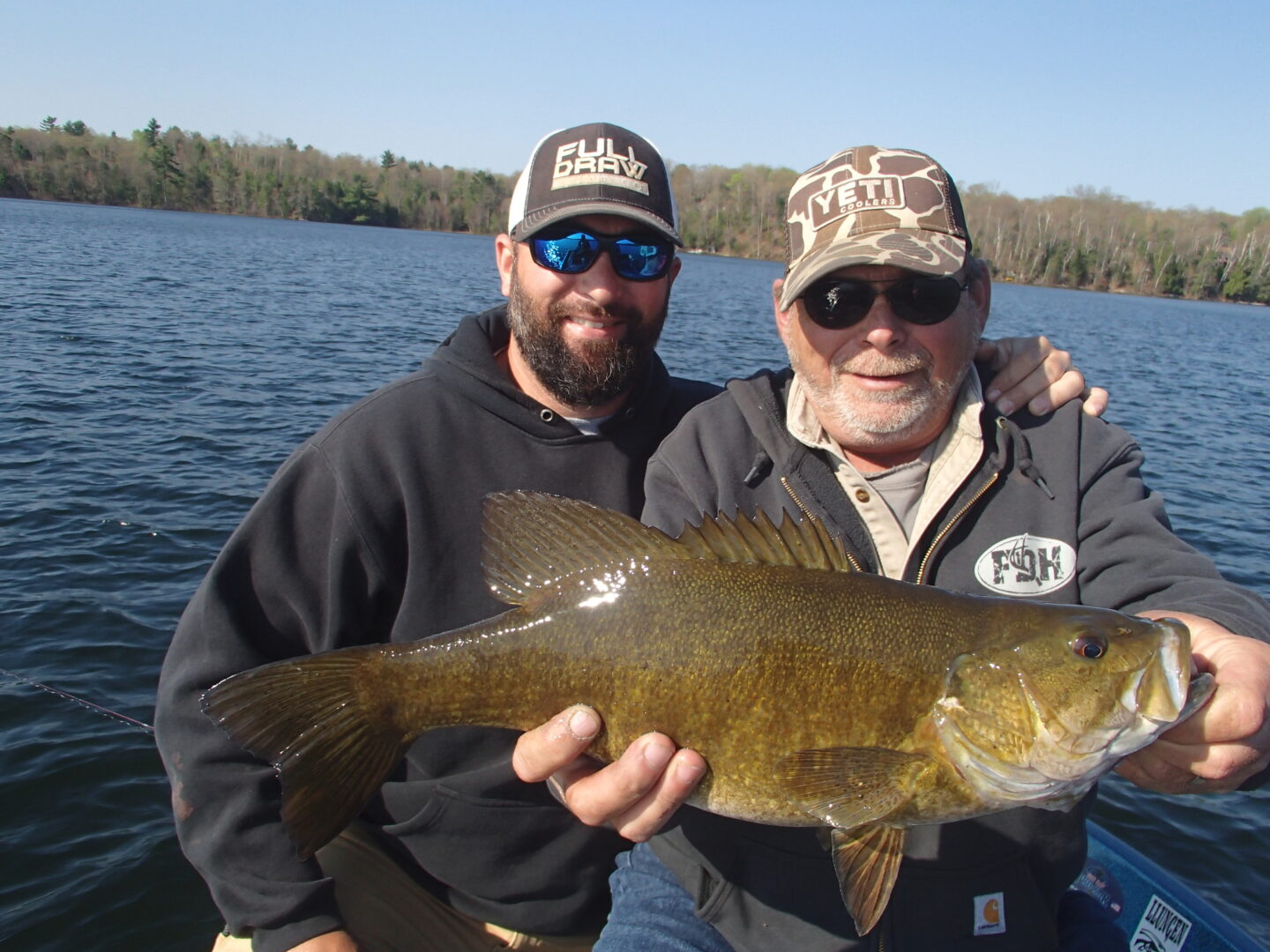
Jeff and Bubby Butler pose with a 21-inch smallmouth caught in spring, 2018. With sadness, Bubby passed away later that year. Capturing the memories with friends and customers is what I enjoy the most about guiding.
Horror Stories
First, let’s get to some of the juicy stuff I’ve been subjected to listening over the years. Keeping all identities confidential, I have accumulated guide and client accounts. We can conclude some folks will never be getting a phone call or email ever again.
GUIDE STORIES – I’ve been told stories of guides who were less than professional and non-courteous. I’ve also heard about clients getting stood-up by the guide. Others have shared with me behavioral problems and rudeness they’ve ran into. Some others are more detail-oriented, commenting to this day on what a gross pig-sty the guide’s boat was.
Other clients have told me about prior charters in which their captains were fishing and fan-casting from the bow of the boat and relegating all clients to the rear, neglecting them altogether. Come on!
CLIENT STORIES – What guide doesn’t have interesting stories to share?
I’ve been no-showed on trip-day mornings by former customers before, never hearing a word from them again. This is the critical loss of a business day. I can assure you that when this ever happens (occasionally), and there is failure to cover full remaining balance due of the trip, those persons lose all future fishing privileges with me.
I’ve had negative experiences with clients in which our collective stubbornness negatively impacts the day. Stubbornly, we’ve gone out despite advising how very poor conditions won’t allow for a good smallmouth bite. Lately, I’ve been getting better at firmly denying their wishes, or convincing that other species could be biting well and are worth our time instead. Why hire a guide if you won’t listen to them?
I’ve had the occasional anglers hire me only to play the lake-quizzing game, and hope I’d give GPS coordinates to where the biggest fish live. These types have never bothered booking me again.
I’ve declined potential guests who’ve requested to harvest their entire catch. I’ve also turned folks away who’ve disregarded my policies and boat rules to conduct themselves only by their self-entitlement.
I’ve also had anglers wanting me to guide them from their vessels, which is a huge liability no-no. Some others have also requested I guide them in other states I am unlicensed and unregistered to operate in.
Others just don’t know how to communicate, and lack the decency to call back.
Worst of all client misconduct, I’ve had customers verbally abuse me by telephone with profanities the day-of, questioning my integrity and guide service operation. They’re now unwelcome forever.
Just recently I hosted folks requesting me to cook them breakfasts and lunch, like I’m a gourmet chef too. No, I am just a fishing guide.
Fishing guides are human, just like you.
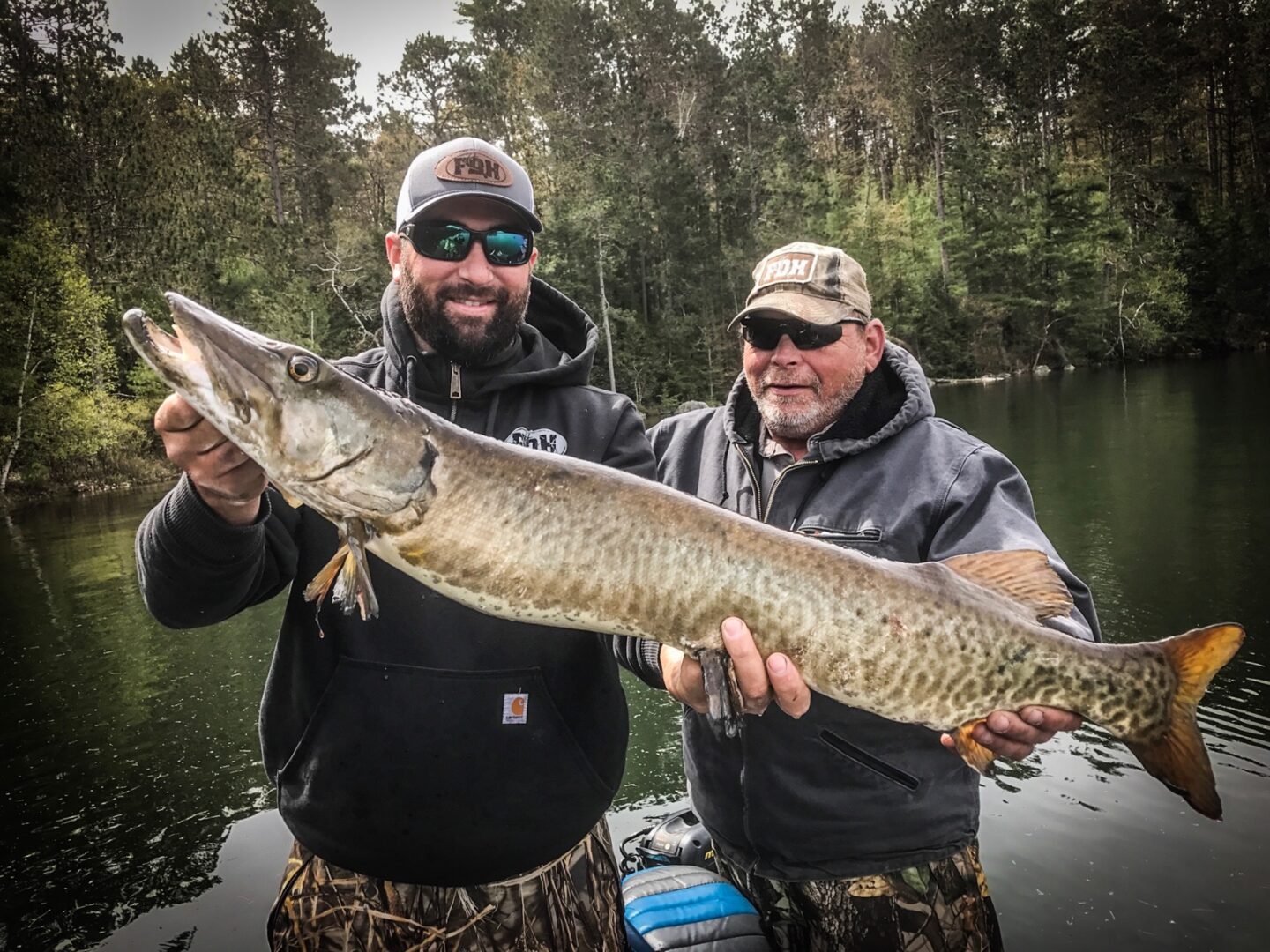
Giving clients a trip to remember, and new opportunities they wouldn’t get elsewhere, is every day’s objective. Jeff and Bubby Butler, posing with muskie, have been customers since year-1. Many customers turn into good friends.
The Guide’s Responsibility
A good fishing guide will work his ass off for his guests. He will also be a people-person too, and extremely patient to work with clients one-on-one.
Guiding is a results-driven occupation where catching fish is the daily objective, but that’s not what guiding is about or should be. I’ve been quick to learn that this occupation is never about the guide and upholding a public image either. It’s teaching others about the waters, the strategies, fish behaviors, and how to catch them.
In the event it’s been a while since you last hired a guide, be advised that the days of mass-harvesting are long gone. Nowadays, individual fishing goals and trip expectations have changed. The role of guides has evolved from fisherman to mostly educator and instructor.
Guides are allowed to be good salesmen, but aren’t allowed to make guarantees. This is where they’ll get into trouble. Then what’s a client to expect from a guide whom he’s hired?
Expect to get your money’s worth.
Successful guides will hold themselves to the highest fishing standards possible, with daily goals to even exceed their own expectations also. Most well-experienced guides who know the industry and take pride in their operation know that the business is customer service-driven.
You’ll want to hire a guide who specializes in his craft and knows his subjects. If you want to target bass, then you’d hire a bass guide. If you want to target walleyes, muskies, or multi-species instead, seek guides who specialize in those subjects.
Is your guide willing to share his knowledge and information with you and to his audience? Not enough fishing experts like to share and reciprocate. In fact, I’ve been scolded and called-out on for sharing the extensive information and knowledge that I share and publish on my website and across other media. If I didn’t operate this way, what’s the purpose in guiding and being a fishing educator in the first place?
The value of educating and helping others outweighs catching.
Does your guide also have intimate relationships with his waters and fisheries, and a lifetime of experience on them? This is a crucial necessity. Guides who know the intricacies of their water bodies will stay in business for a long time.
A caring guide will look out for the well-being of his guests and make sure they are being engaged throughout the duration of the trip. You are the priority, the guide is not. In my boat, I want everyone else to catch the next big fish. Guiding other anglers is like coaching. I’m now fishing for others.
In today’s world, guiding is a people business. What’s most enjoyable about the guiding profession is working and connecting with anglers who come from all walks of life and fishing backgrounds. If the day was enjoyable for them, many of them return annually, becoming repeat customers and really great friends.
The most satisfaction I get is when customers and friends text message me photos after they went out on their own. Seeing them happy and thankful is just the coolest feeling!
If you don’t agree with how a prospective guide operates, or don’t find them to be compatible to your fishing skills and needs, move on to the next available guy out there.
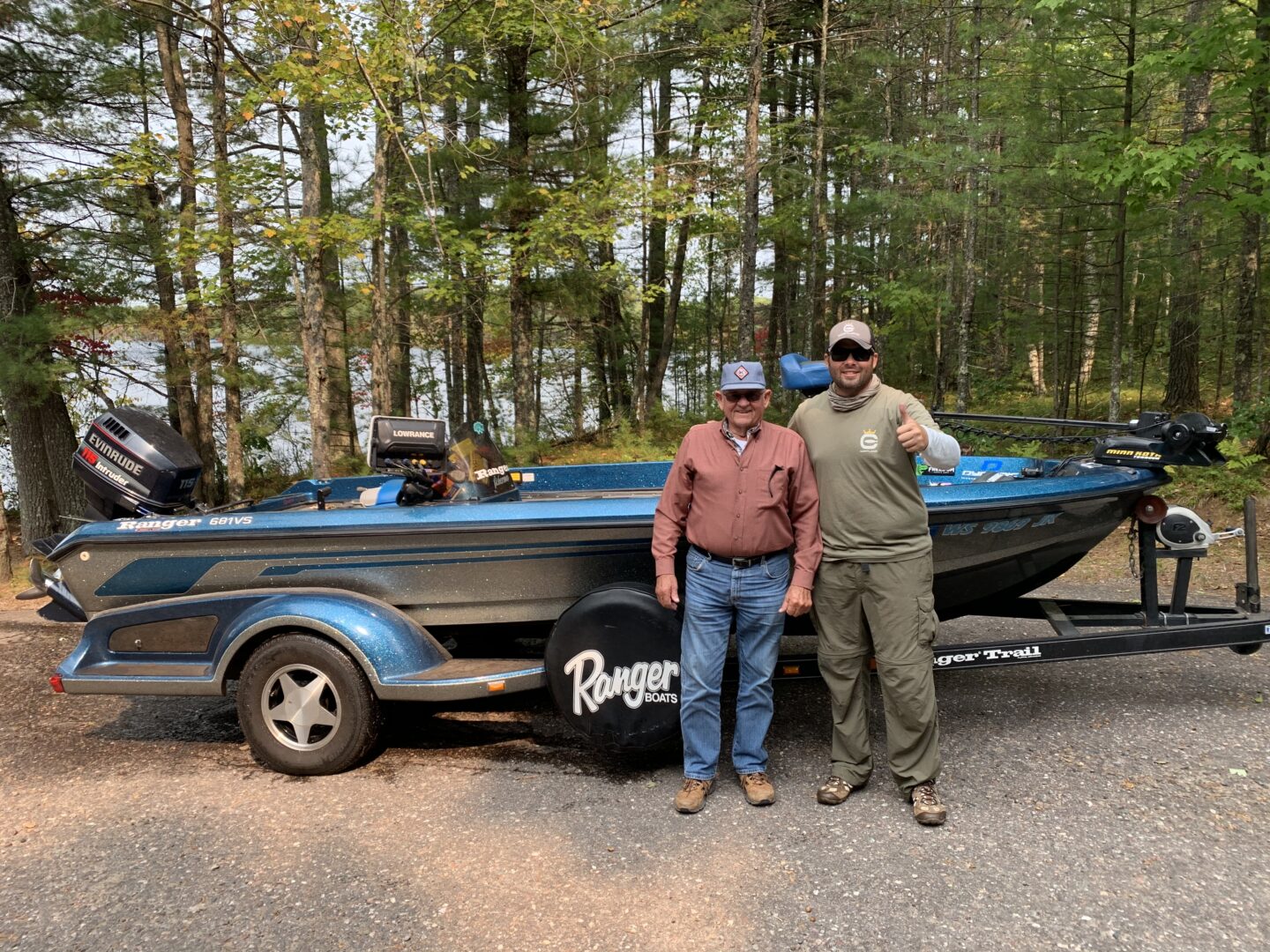
A caring guide will look out for the well-being of his guests and make sure they are being engaged throughout the duration of the trip. You are the priority, the guide is not. Guides should be fishing for others rather than themselves
The Customer’s Responsibility
Guides have expectations of clients as well. First and foremost, be truthful and honest about everything during your initial consultation with the guide. Guides will be screening you too, and will also want to find out as much as they can about you and your intentions, to assure it will be a good fit.
Guides expect full deposits, otherwise no reservation or trip for you, and prompt payment due upon completion of trip. Consider tipping also, guides are in the service industry after all, especially if the trip was a success to you and you want to keep being introduced to their best spots and waters.
Lastly, show up on time. When in the boat, behave responsibly on the water. You are on the guide’s time as well.
Understand that guiding is not easy. We do not control fish behaviors or have superpowers to make them bite. We can teach and share as much knowledge as we can, but it’s up to the individuals to work hard as well. Quite frankly, the end results of the trip are dependent upon the customer.
Many potential clients don’t ask questions, and more importantly don’t emphasize their expectations and fishing goals to a guide during the booking process. Resulting from this, they’ve booked a trip for all the wrong reasons, and will absolutely not achieve their fishing goals.
Some guides provide teaching and learning services while others do not. The only way to hire the right guide is by first asking them questions.
NEW CLIENT CHECKLIST – To help assure satisfaction and a fishing trip that meets your needs and requirements, please do the following leg-work with your guide of choice prior to booking the trip. Most will not be offended, and no question asked is a stupid question:
- How long is the fishing trip? Most guides offer multiple packages comprised of full day or half day trips, while others offer by the hour. Make certain you know and mutually agree to the length of trip and guide’s rate.
- When are you available? Be understanding of the guide’s work and life schedules, and aware that there could be several other anglers ahead of you in line to fish with him if they have a wait-list. It’s always in everyone’s best interests to book a trip several months in advance versus the week or day-of. As we know, last minute plans never work out.
- What are the rates? Know everything that is included in the cost before committing to the trip, including additional service charges. Be keenly aware that rates can also be identifiers of a successful operation and its quality. High costs can signify the guide has high operating expenses to help pay for equipment and bills, as well as fuel and commercial insurance expenses. A guide’s rate is also his figure in determining self-worth. If it’s in response to his status or being high in demand, people are willing to pay for it. Meanwhile below market-value and significantly lesser rates by someone else could represent a lower-quality operation and lack of liability insurance. These are red flags. Do not get on a boat if operator isn’t commercially insured, registered, and licensed with his state to guide.
- Are you certified and accredited? A customer should expect a safety-conscious guide who operates his business by the book. Check local and state requirements for fishing guides, and then inquire with your potential host to check whether the operation is legal or not.
- What gear & equipment is provided? What should I bring? Most guide services will provide and give clients full access to everything in the boat. I am most confident in the trip’s success when all guests fish with what I provide and use myself. Guides will also provide clients with boat rules and checklists of what is and is not acceptable to bring for trip.
- What kind of boat do you have? You wouldn’t believe the number of prospective clients whose decisions to book or not are based on a guide’s fishing platform. This is the worst thing for anyone to prioritize. The quality of a fishing trip and knowledge you will gain is not determined by the fishing boat. It’s more important to know what type of fishing platform it is, how it’s configured for optimal success, what are its weight capacity limits, and if the guide has a limit to the number of persons he can host.
- Will you be fishing for us? Or will you be fishing just for yourself? I’m horrified by the number of guides who still fish from the front of the boat, ahead of the guests. Lots of guides also record and produce YouTube videos for personal gratification and popularity at the expense of a customer’s fishing time and money. Guides who care about customer service and the success of his guests will fish from the rear of the boat, or not at all. This is an extremely important question to ask when making the first inquiry. You want to be the priority and recipient of first-class service and have the first-crack at all the fish. You do not want to hire someone who will be out-fishing the customers.
- Are you catch and release only? Most guides who steward and care for their resources will preach this concept and won’t host you otherwise.
- Are you a full time or part time guide? To make it in the fishing world, multiple careers are needed. Every successful fishing guide I am friends with has a primary year-round occupation in addition to their seasonal fishing careers. I’ve never been challenged by this and yet by working two jobs and living in two states am able to make it work. You should want to hire someone who fishes his local waters 150 days per year versus someone who fishes only on weekends.
- How is the fishing? A truthful guide will keep expectations realistic and not make any guarantees. To be a perfect match, clients must also be truthful and share the same outlook and expectations of the guide as well. Not every day will be as good as a Saturday TV fishing show. It’s difficult for guides to predict good fishing on your trip day several weeks in advance versus the week-of and days prior. You should expect a guide to let you know what is going on during the week-of.
- What can we expect? Convey your trip expectations and fishing goals in a forthright manner. I’ve had prospective customers demand unreasonable results. On the limited inland fisheries of Wisconsin, some hope to achieve the same results that are common on the more world class waters of the Great Lakes and Canadian Shield. Keep it real for the waters you’ll fish, otherwise you could be declined for a trip.
- Can you provide me with a list of references? Reputable guides will be able to provide a list of references and client testimony. Beyond this, do a Google search for a background check if the guide has a poorly-made website. I’ve had friends book trips with people who went on to become convicted felons.
- Where will we be meeting, and fishing? Get this done early and stay in contact with the guide often by phone and e-mail. Be aware that guides are willing to only transport you only to the lake and back to the meet-up location. We are not your chauffeurs and concierge services otherwise. The logistics of a trip can be completed several weeks prior. Unless the guide service operates on a single body of water, most guides will not plan out the day’s fishing itinerary, meeting locations, and destinations until a few days beforehand, or until knowing what the conditions are like first.
- Come to agreement on how the trip day will be spent. This is important to agree upon sooner rather than later to avoid any trip-day surprises. I’ve hosted customers who caught a dozen quality fish in a full day on lakes unaccommodating to their skill levels, but were not happy afterwards.
Having unrealistic expectations is acceptable, and sometimes challenges anglers in a positive way. For the most part, they’re often unreasonable to the guide. Guides who are professional and honest will go out of their way to accommodate your needs and requests in the best ways possible. They will also cater fishing strategies and custom-tailor the day’s fishing destinations to best-meet fishing needs and requirements. Guides will also appreciate your flexibility and acknowledgement of their game-plan and ideas.
For the sake of my mental health and yours for this season and beyond, I challenge you to do your due diligence when the time comes to hire a guide. The preventative measures I’ve shared will help you avoid making critical hiring mistakes. Furthermore, setting reasonable and realistic expectations for yourself and the fishing you hope to experience beforehand will alleviate the guide’s headaches, resulting in a most enjoyable trip for all concerned.
Just like clients have their requirements and expectations of a guide, guides have requirements and expectations of their clients too. It’s none of my business to tell guides how to operate and potential clients whom they should hire. Facilitating customer relationships, good communication skills, and doing business are a two-way street. Both parties are not entitled to one another, but are required to be compatible with one another to assure a fishing trip’s success.
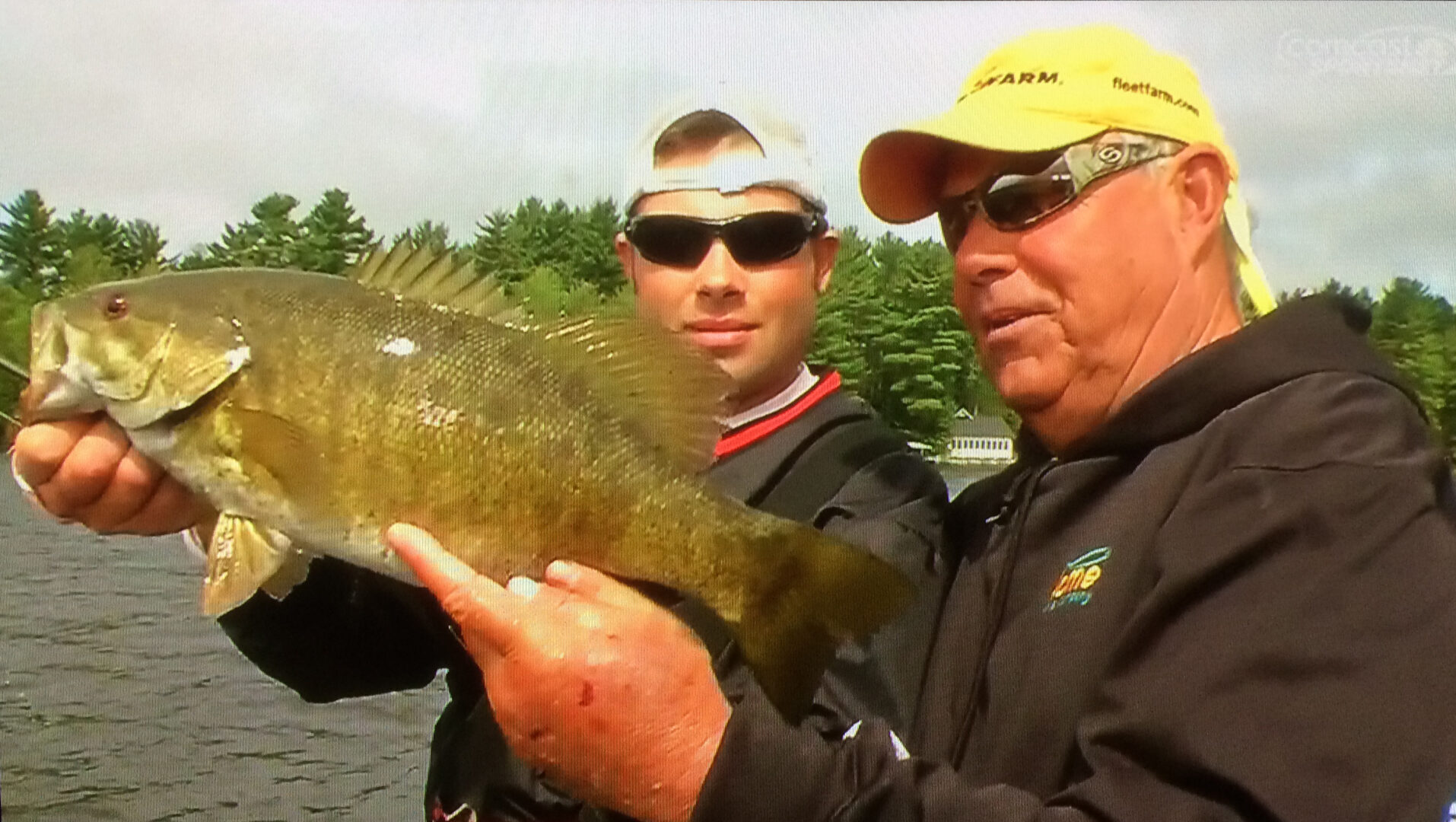
New career opportunities and fishing experiences will be the byproduct of working hard, working well, and doing a job the right way. Guiding has provided occasional invitations to be included on network television. Here I’m with John Gillespie, filming a smallmouth episode.
Andrew Ragas splits time between the Chicago area and Wisconsin’s Northwoods. Based in Minocqua, WI, he specializes in trophy bass fishing and offers guided trips from May thru October. While big bass is the passion, he dabbles in multi-species as well. He may be visited online at www.northwoodsbass.com




